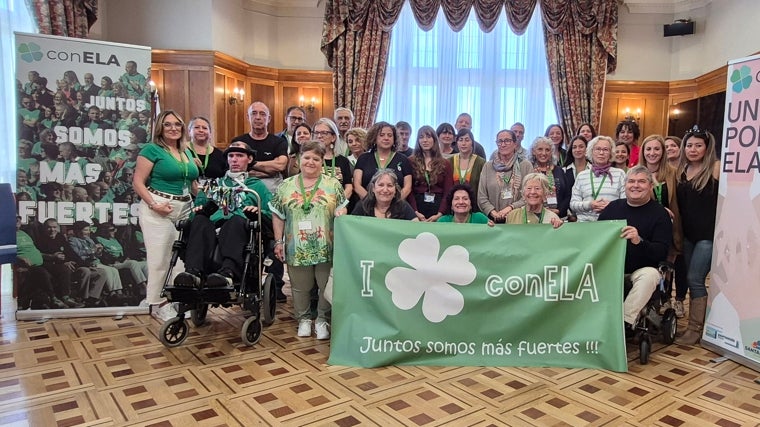A law without a budget and more than 600 deaths: the urgency of living with ALS in Spain

Every June 21st, World Amyotrophic Lateral Sclerosis (ALS) Day is celebrated. This cruel, incurable disease condemns those who suffer from it to a progressive loss of mobility, speech, breathing, and, ultimately, life. But in Spain, ALS also entails something more: a constant struggle against institutional neglect , soulless bureaucracy, and the human and economic cost that falls almost exclusively on families.
This year, the anniversary is marked by a clamor: the real and budgeted implementation of the ELA Law, unanimously approved by Congress in October 2024 and still without allocated resources.
José Jiménez Aroca sums it up bluntly: "After eight months without an implementation framework for this to happen, we believe it is necessary to act with much greater determination and humanity," explains the vice president of ConELA, a confederation of associations that forms part of the Platform of Patient Organizations (POP).
In Spain, it is estimated that between 4,000 and 4,500 people live with ALS. Every day, three people are diagnosed and another three die from it. The average age at diagnosis is between 55 and 65 years, and life expectancy is between three and five years.
The direct and indirect costs of the disease can easily exceed €35,000 per year, and can rise to €100,000 in advanced stages. This is an unaffordable figure for most families , who must pay for home care, technical equipment, home adaptations, therapies, speech therapy, and communication devices.
"Given the lack of coordination between administrations and funding for the law, we are trying to ensure that aid for people in critical situations of the disease is provided through a decree-law promoted by the Ministry of Health," says Jiménez Aroca.
Through ConELA, they offer social and healthcare services through each of the 15 patient associations that make up the organization. "Each one acts based on their knowledge of their own community, the disease, and their closeness to those affected," explains the vice president.
Law 3/2024, known as the ELA Law, promised structural change: comprehensive and continuous care, urgent processing of dependency and disability claims, home care, and specific support for non-professional caregivers. A promise that, to this day, remains unfulfilled.
In May 2025, the Ministry of Health announced a " shock plan " with a €10 million allocation for patients in advanced stages, as a temporary solution while structural funding is negotiated. For the associations, this is an "insufficient and overdue" measure.
Since the law was passed , more than 600 people have died without receiving any help, Jiménez Aroca complains. "We were promised dignity, but we still depend on the invisible efforts of families."
In the absence of public resources, family members are suddenly the ones who become full-time caregivers. People without medical training or technical support must leave their jobs, reorganize their lives, and cope with the daily deterioration of their loved ones without rest or respite .
Job and social sacrifices, emotional impact, and physical strain are part of the silent price they pay.
"It's a challenge to be able to live with this disease while enjoying the rights granted to us by Law 03/2024, primarily 24-hour care," says the president of ADELA CV. "This will allow us, as people with ALS, to live our lives without financially burdening our community or, as is currently the case, requiring sedation."
As for caregivers, most often family members, they could "enjoy their lives and live with us in their roles as wife, husband, partner, father, mother, daughter, or son," says Jiménez Aroca. "In addition, it frees them from the moral burden of caring for a loved one 24 hours a day, seven days a week."
 The members of the association, at a recent meeting
CONELA
The members of the association, at a recent meeting
CONELA
Since January, patient, family, and organization groups have been holding demonstrations on the 21st of each month in various Spanish cities. They are demanding what the law already guarantees on paper: stable funding, equal access to care, and effective protection for caregivers.
In Madrid, León, Seville, and Valencia, banners repeatedly proclaim: "Without funding, there is no law," "ALS doesn't wait," and "We don't want to die waiting." Discontent is growing, and time is running out.
This World ALS Day, the association's leaders explain, Spain cannot be content with launching social media campaigns. What's urgent, they demand, is not symbolic visibility but rather the activation of a law that has already been passed. Every day that passes without resources is a day stolen from those without time.
"ALS doesn't wait, and the lives of those affected deserve respect from the authorities and the full support of society," concludes Jiménez Aroca.
abc





